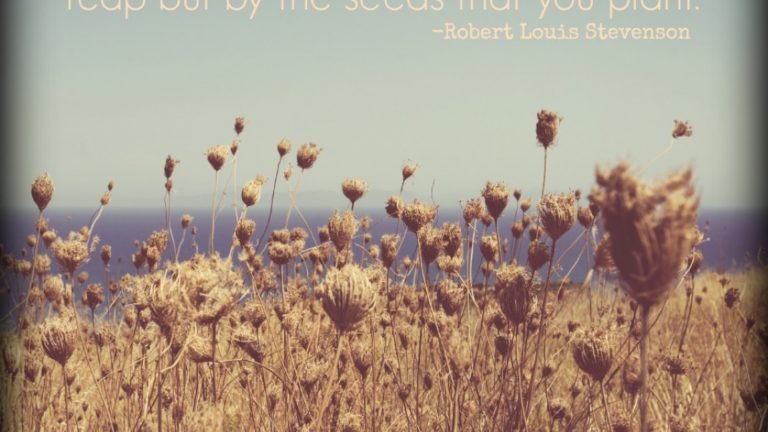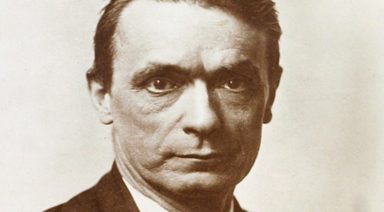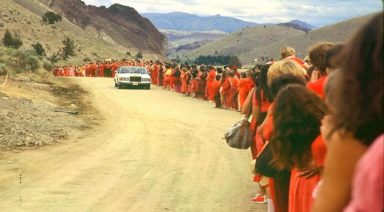30 Quotes to Center Your Week

The weekend is a wonderful, far-too-short event, and it’s easy to be one of those people dragging their feet back to the workplace and the rest of the week. It doesn’t need to be this way! Sometimes, the right words can mean all the difference between a great week and a week full of blah’s. Take inspiration from these incredible words and meditate on them and how they can apply to your life and situations directly. Then, see the difference how a centered, inspired heart can make in your week! Words of Positivity for Your Week:
- Don’t judge each day by the harvest you reap but by the seeds that you plant. -Robert Louis Stevenson
- We can’t help everyone, but everyone can help someone. -Ronald Reagan
- How wonderful it is that nobody need wait a single moment before starting to improve the world. -Anne Frank
- Success is to be measured not so much by the position that one has reached in life as by the obstacles which he has overcome. -Booker T. Washington
- I am determined to be cheerful and happy in whatever situation I may find myself. For I have learned that the greater part of our misery or unhappiness is determined not by our circumstance but by our disposition. -Martha Washington
- Happiness cannot be traveled to, owned, earned, worn or consumed. Happiness is the spiritual experience of living every minute with love, grace, and gratitude. -Denis Waitley
- Positive feelings come from being honest about yourself and accepting your personality, and physical characteristics, warts and all; and, from belonging to a family that accepts you without question. -Willard Scott
- It isn’t until you come to a spiritual understanding of who you are – not necessarily a religious feeling, but deep down, the spirit within – that you can begin to take control. -Oprah Winfrey
- Today I choose life. Every morning when I wake up I can choose joy, happiness, negativity, pain… To feel the freedom that comes from being able to continue to make mistakes and choices – today I choose to feel life, not to deny my humanity but embrace it. -Kevyn Aucoin
- Let us be grateful to people who make us happy, they are the charming gardeners who make our souls blossom. -Marcel Proust
- Take up one idea. Make that one idea your life – think of it, dream of it, live on that idea. Let the brain, muscles, nerves, every part of your body, be full of that idea, and just leave every other idea alone. This is the way to success. -Swami Vivekananda
- Success consists of going from failure to failure without loss of enthusiasm. -Winston Churchill
- Never believe that a few caring people can’t change the world. For, indeed, that’s all who ever have. -Margaret Mead
- Too often we underestimate the power of a touch, a smile, a kind word, a listening ear, an honest compliment, or the smallest act of caring, all of which have the potential to turn a life around. -Leo Buscaglia
- I am here for a purpose and that purpose is to grow into a mountain, not to shrink to a grain of sand. Henceforth will I apply ALL my efforts to become the highest mountain of all and I will strain my potential until it cries for mercy. -Og Mandino
- This happiness consisted of nothing else but the harmony of the few things around me with my own existence, a feeling of contentment and well-being that needed no changes and no intensification. -Herman Hesse
- Peace is a journey of a thousand miles and it must be taken one step at a time. -Lyndon B. Johnson
- The real and lasting victories are those of peace, and not of war. -Ralph Waldo Emerson
- Winners make a habit of manufacturing their own positive expectations in advance of the event. -Brian Tracy
- I do believe we’re all connected. I do believe in positive energy. I do believe in the power of prayer. I do believe in putting good out into the world. And I believe in taking care of each other. -Harvey Fierstein
- Permanence, perseverance and persistence in spite of all obstacles, discouragements, and impossibilities: It is this, that in all things distinguishes the strong soul from the weak. -Thomas Carlyle
- Thousands of candles can be lighted from a single candle, and the life of the candle will not be shortened. Happiness never decreases by being shared. –Buddha
- Change your thoughts and you change your world. -Norman Vincent Peale
- Clouds come floating into my life, no longer to carry rain or usher storm, but to add color to my sunset sky. -Rabindranath Tagore
- Every moment and every event of every man’s life on earth plants something in his soul. -Thomas Merton
- The most authentic thing about us is our capacity to create, to overcome, to endure, to transform, to love and to be greater than our suffering. -Ben Okri
- Yesterday we obeyed kings and bent our necks before emperors. But today we kneel only to truth, follow only beauty, and obey only love. -Khalil Gibran
- The only journey is the one within. -Rainer Maria Rilke
- A man has to learn that he cannot command things, but that he can command himself; that he cannot coerce the wills of others, but that he can mold and master his own will: and things serve him who serves Truth; people seek guidance of him who is master of himself. -James Allen
- As knowledge increases, wonder deepens. -Charles Morgan
How To Bounce Back When Life Knocks You Down

At times life can get difficult. We’ve all experienced this at some point and likely more recently than not, given what’s been happening in the world as a result of the Coronavirus.
Maybe it’s a broken relationship, the loss of a job, accumulating debt or financial ruin, a terminal diagnosis, or grieving the passing of a loved one.
These are some of the biggest emotional challenges of our lives, and they seem to not escape anyone. In the depths of despair, no matter how hard you might try, it can feel utterly frustrating and overwhelming.
However, is it possible to find meaning in adversity? And could this lead us to discover a deeper purpose in our lives?
This is something that Sonia Ricotti knows all too well. Years back, she hit rock bottom after losing her home, accumulating six-figures in debt, breaking off a relationship with her alcoholic partner, and going through a significant health scare. For a fleeting moment, she even thought about ending it all.




































